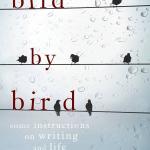Quakers are an interesting bunch in that our religious practice is precisely that: practice. Surrounding this word, minds like de Certeau1 and Jackson are summoned. Perhaps no greater, however, comes to the forefront than the [in]famous Pierre Bourdieu. Known most contentiously for his theory of habitus (which he spent the bulk of his life defending), I believe the true gem of his work is nestled deeper in his theory of practice(which, ironically, is what he titled his initial, seminal text, and which very few remember him for). It is in his theory of practice that I feel I can best represent my religious community.
To fully explain how I relate Bourdieu to Quakers, some groundwork must be laid. Fellow anthropologist and Quaker Peter Collins calls attention to two of Bourdieu’s terms which lie in tandem with one-another: doxa and praxis. Whilst these two may lie in direct opposition, they do so only in terms of manifestation, and they are, therefore, not entirely incompatible. Doxa – what a person believes – is an inherently personal, internal process.Praxis – what a person does – is, eo ipso, public: actions are performed externally in the sphere of ‘us’.
Collins has, elsewhere, explored Quaker-ism more fully than I can lay out here. I do not want to edge in on his field. I do, however, want to express a personal voice within it.
It is common vernacular, in Quaker circles, that Quaker-ism is less about ortho-doxy and more about ortho-praxy; it is less about correct-belief, and more about correct-action. Our semi-canonic text, even, is titled ‘Quaker Faith and Practice’ (emphasis mine). The smaller, portable, text is the first two sections of that text, known as ‘Advices and Queries’, implying no certainty, merely ‘more conversation needed’.
Many Meetings (the equivalent of a synagogue, temple, or church service) vary greatly in terms of what each member believes. I remember one of my first Meetings. We worship in the ‘traditional’ Quaker fashion: the Unprogrammed Meeting. In these, Friends gather, sit in concentric circles, and meditate/ruminate in silence. If any one Friend feels prompted to speak, they stand and do so.
Read the rest here















